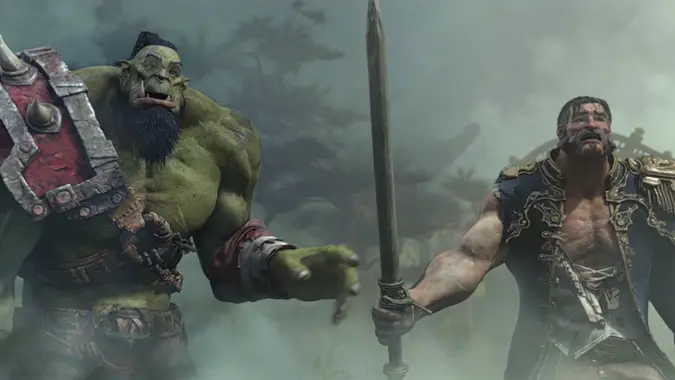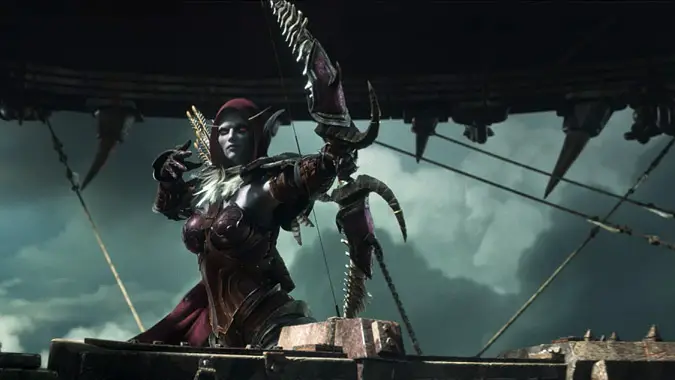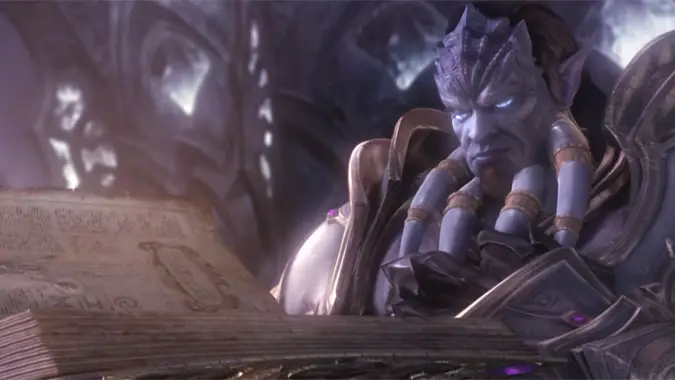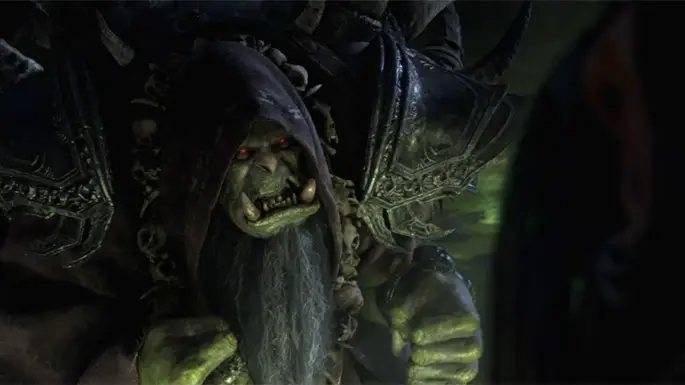Role Play: Adding realism to a roleplay character

World of Warcraft is by nature a game of entirely fantastical elements. You’ve got the magic-affiliated pointy-eared guys, green guys in both little and big variety, giant talking cow-people, giant talking blue goat-people, giant talking bears, dragons, spellcasting, teleportation, alternate worlds, alternate timelines, alternate realities — the list goes on and on. When you create a roleplay character in WoW, you’re crafting a character out of that fantasy world, which means that pretty much anything goes.
But there’s something to be said for adding touches of realism to your chosen roleplay character. Sure, the world may be full of magical fantasy, but that character you create is a little easier to handle if you can relate to them. It’s also a little easier for other people to accept if they can relate to that character too. In a world like Azeroth, though, how do you go about adding a little realism to a roleplay character?

Realism
First off — what constitutes “realism” in a fantasy world? It’s actually got very little to do with the world at all, and everything to do with the character you create. When I say “create a character you can relate to,” I don’t mean go roll a Human and give it a story that mimics your own life. What I mean is that the more you can identify with the kind of person they are the more authentic that character will feel to those who interact with it.
And the more you can get into your character’s head, the easier it will be to come up with snap decisions to what’s happening to your character. That roleplay character doesn’t need to be a carbon copy of you — it just needs to be someone you can relate to. Someone with a way of thinking you can get behind.
You’ll often see people create heroic or villainous characters, but they lack that spark of realism that takes them beyond that cardboard persona of a two-dimensional do-gooder or dastardly scoundrel. That doesn’t automatically mean it’s a bad character, or a bad roleplayer — it just means they don’t have that piece that other roleplayers can relate to in one way or another.

Flaws and goals
What’s the quickest way to make a character feel more “real?” Give them some flaws. Nobody is perfect. Everyone’s got flaws. Even in superhero comics about your typical goldenboy, that gleaming example of heroism has some flaws to work with — that’s part of what makes those stories interesting. You’ll also find many superhero movies revolve around the idea of flawed heroes and how they resolve those flaws and conflicts that make them what they are.
Flaws aren’t automatically negative traits. Don’t think of them as being “bad characteristics,” think of them as being a blanket of small problems that your character continually finds themselves having to either work around or work with. A flaw is simply that one little thing that always seems to get between your character and whatever they want.
That’s the other thing that you should look for when you’re creating a character: goals. I don’t mean big goals, like finding their long-lost relative, recapturing their childhood home, or saving the world from certain peril. I mean little goals, the things we tend to not really think about. Your character might want to learn a skill, for example — like a profession, another language, or even researching other cultures. Or maybe it’s even simpler than that, and they’re looking to find a nice outfit they can wear, plant a small garden, or read that book they’ve been carrying in their bags for years.

Quirks and habits
You know how you have things you always do every day no matter what? Like first thing in the morning, you always make a pot of coffee or before you go to sleep at night, you always set out what you’re going to wear the next day? Habits — things you’ve done for so long that they’re simply ingrained into your daily process — aren’t just restricted to the real world. Your roleplay character may very well have some habits of their own.
The difference between a habit and a quirk is that quirks are generally a little more “odd,” like tickling the roof of your car if you happen to go through a yellow light or hitting the lock button on your car three times, just to make sure it’s good and locked. A quirk is an unusual reaction to a certain event or an unusual habitual response to being in a certain place at a certain time.
Habits are something almost everyone has, while quirks tend to be a little more personal. Everyone brushes their teeth in the morning, that’s just habit — but not everyone traces letters with their feet while waiting in line. You don’t need to go overboard with either of these, but adding a few habits to your character’s day-to-day activities, or giving them a few quirks for special situations can help add a feeling of realism.

Is it necessary?
You don’t need to think about these things when you’re roleplaying, if that’s not your cup of tea. Realism is one of those things that’s best in small doses when you’re roleplaying anyway. Sure, sitting around playing house might seem realistic, but it doesn’t exactly make for the most engaging stories in the world. As with any kind of roleplay, you can choose to do whatever you want, however you like.
And if you do decide to add a few pieces of realistic elements to your character, remember that less is more. The point isn’t to make your character stand out as utterly unique, it’s to make your character feel a little more “real.” Flaws, goals, habits, and quirks aren’t the things that should stand out when someone is speaking to your character, they’re simply part of the background of what makes your character who they are. They’re the qualities that affect making decisions or choices that might otherwise be easy. They’re the aspects of a person that make them question whether what’s right is really right, and what’s wrong is really wrong.
For a hero, they’re part of that grand tapestry that makes your character hop out of bed and keep fighting for a good cause, day in and day out. And for a villain, they’re either the qualities that shape your villain into feeling the way they feel — or the perceptions that convince them what they’re doing is for the best.
Please consider supporting our Patreon!
Join the Discussion
Blizzard Watch is a safe space for all readers. By leaving comments on this site you agree to follow our commenting and community guidelines.
 @Shadesogrey
@Shadesogrey



